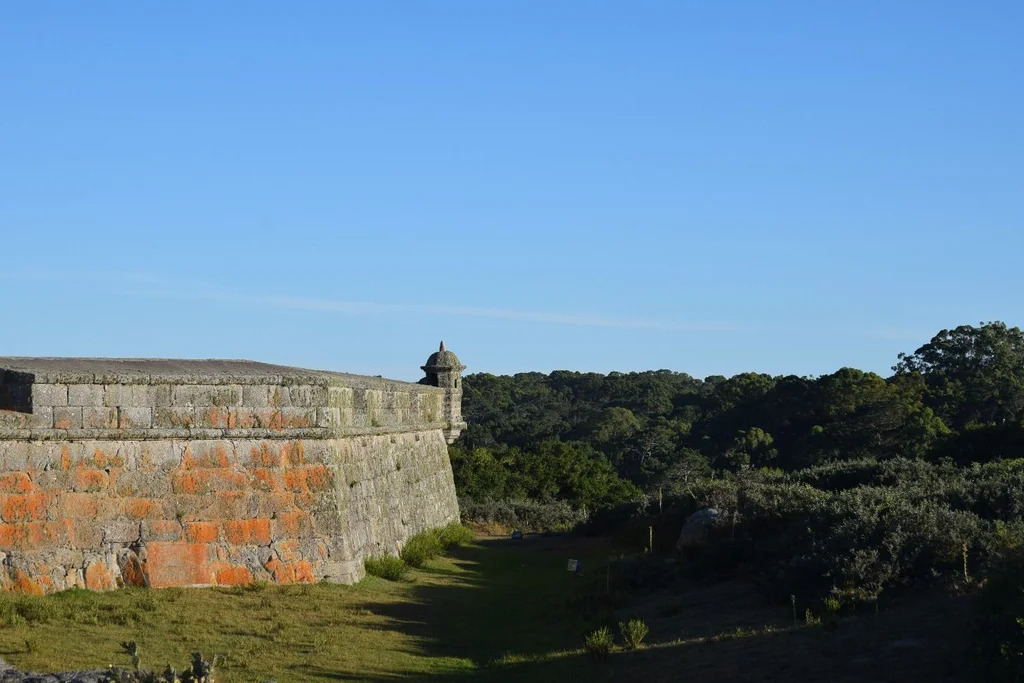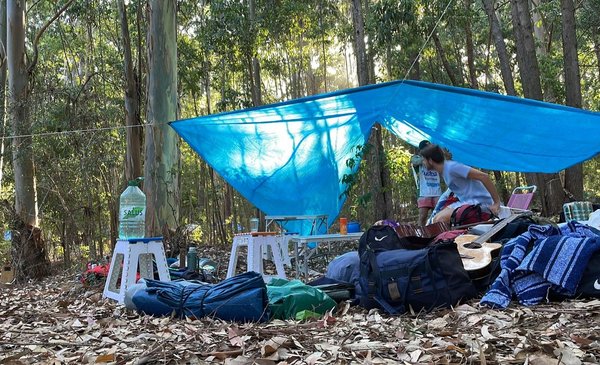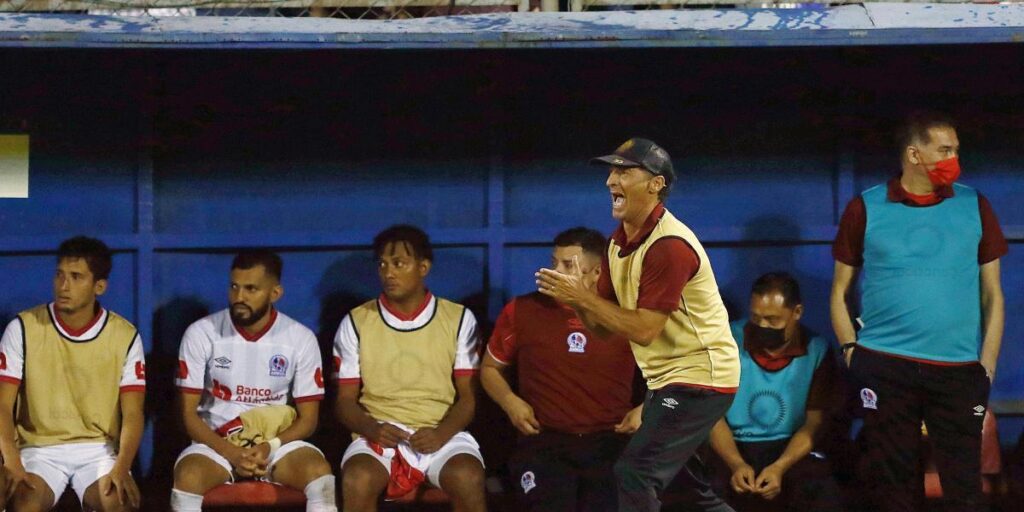The first alert came through WhatsApp in the middle of lunch: cough and sore throat in the house where they had had the first preview of the summer in Punta del Diablo. “I hope it doesn’t get swabbed quickly,” was the immediate reaction in the group of nine friends from Montevideo. “It tests positive on January 2 and you have to abort the summer,” admits Lucas Díaz.
The first season in two years began with great gatherings and dances in hostels. Similar to before. “Nor was it anything out of the ordinary for a stay in Rocha in January, between the cool nights and the heat of the day on the beach,” another member of the group, Santiago Gómez, tells about the nearby symptoms.
They spent four nights at the spa, making the most of the nightlife. As of January 6, they planned to “retreat” to camp in the Santa Teresa National Park, and there the dynamics would be different.
On January 6 they set up the tents, with no other requirement than the vaccination certificate. That same day her acquaintances with symptoms began to swab themselves. This is how the first positive cases jumped: several friends of two of the girlfriends of those who made up the group.
The Observer
Stove in the heart of the Santa Teresa campsite
The brides, meanwhile, had all the tickets for the same result.
“Of all those who were around us, only one tested negative,” says Gómez. In the middle of camping, now it was their turn to feel the first headaches and throat pains. Fogón in between, there was a set-up.
“From the beginning we knew that it was one of the great possibilities, knowing that with three vaccines we were going to pass it lightly. We looked at each other’s faces and said: ‘Let’s have the best time we can in this outdoor place. The best option, before carrying the covid in a bondi or taking it home, is to stay here and have it among us,'” Gómez relives.
“If someone had it, we all had it,” says Díaz. And so it was, even if he hadn’t swabbed to confirm it. The young people left the campsite on January 12, ten days after the first contacts. Díaz left the night before with his girlfriend, who had also settled in Santa Teresa after the Punta del Diablo festivities.
And Díaz confesses: “I had the end of my license and had to go back to work. I bought the bus back and with my girlfriend when we left we were aware that we had covid. We got on with a double mask. We didn’t test each other, we could play around with it, but we both knew it. You are on a four-hour bus, knowing that you can be contagious. It’s a bit of a weird situation.”
The real case – recounted by the protagonists who agreed to tell their experience under a fictitious name – took place in the first half of January, and did not trigger major consequences in the 1,400-hectare park of Roche. Or at least, neither they nor the Army found out.
The covid-19 outbreaks in the eastern seaside resorts –enhanced by the circulation of the omicron variant– set the tone for the first summer season with parties since 2020, especially in Maldonado. With the passing of January, the alarms began to go off in different areas – from events, businesses and even in rentals– before the massive reproduction of cases.
Surrounded by resorts that run along Route 9, Santa Teresa has no way of detecting where the campers come from.
Asked if he was aware of the disembarkation of infected young people from other resorts, the Undersecretary of Defense, Rivera Elgue, said he was not aware. “You have to keep in mind that two vaccines are requested to enter the park, not the result of the test,” he warned. The Observer the chief lobbyist, who these days is substituting for Minister Javier García.
From the Army –which administers Santa Teresa through the National Park Service– they indicated to The Observer that it appeals to the “individual conscience”, and that the soldiers who work in the territory are not going to go out to apply tests or to question the campers.
Santa Teresa had during the first days of the year an occupation of 96% in the total of 1,800 plots that it has scattered on the property. In the hypothetical case in which four people rest in each of them, that implies about 7,200 campers on average, according to the capricious estimate they make, since those who administer the property have no way of knowing exactly.

archive
Santa Teresa Fortress, one of the attractions of the park of more than a thousand hectares
This last week – from January 8 to 14 – the occupation fell to 70%, while for this week it is expected to register 50% of the monopolized plots. Army sources admitted that the situation of young people coming from the spas who pass the disease in the extensive territory is a “possibility” for which they have received several consultations, although there is no type of control that allows verifying it.
There is only one firm pointer on the topic: The health clinic that is close to the capatacía has not received any consultation for a suspicious case, nor has any covid-19 case had to attend, he assured The Observer Army spokesman Pedro Gómez. However, he clarified that the consultation carried out served to “reinforce word of mouth” on the part of the troops so that the campers take care of themselves and notify themselves in case of any positive case.
contingency plan
The Santa Teresa National Park has a contingency plan in place in the event of detecting an outbreak of covid-19.
As Gomez explained to The Observer, the Army reserved area E of the 1,400-hectare property, located at the height of Playa del Barco. It is the extreme west of the area enabled for camping, so it is far from the rest of the plots of the territory. In that space, the Army kept an exclusive bathroom module for patients.
Said plan, explained the spokesman, is foreseen for those positive or suspected cases who cannot leave the park by their own means, since it is not convenient for patients to travel by bus while they are sick, due to risk to other passengers.


















